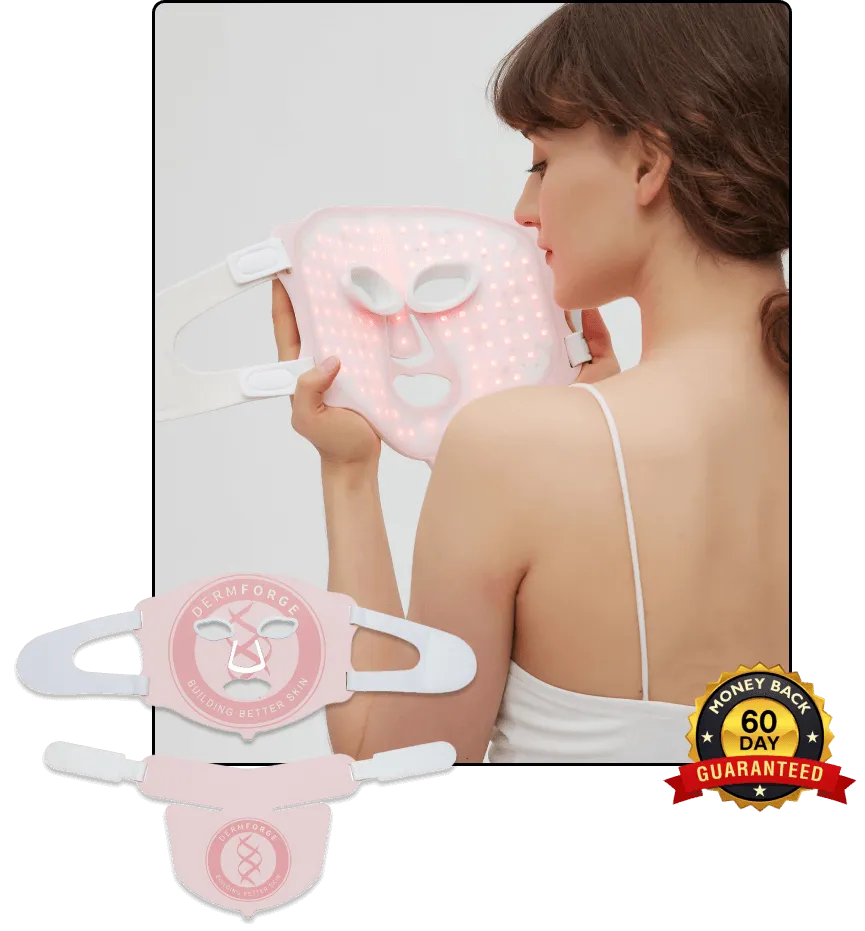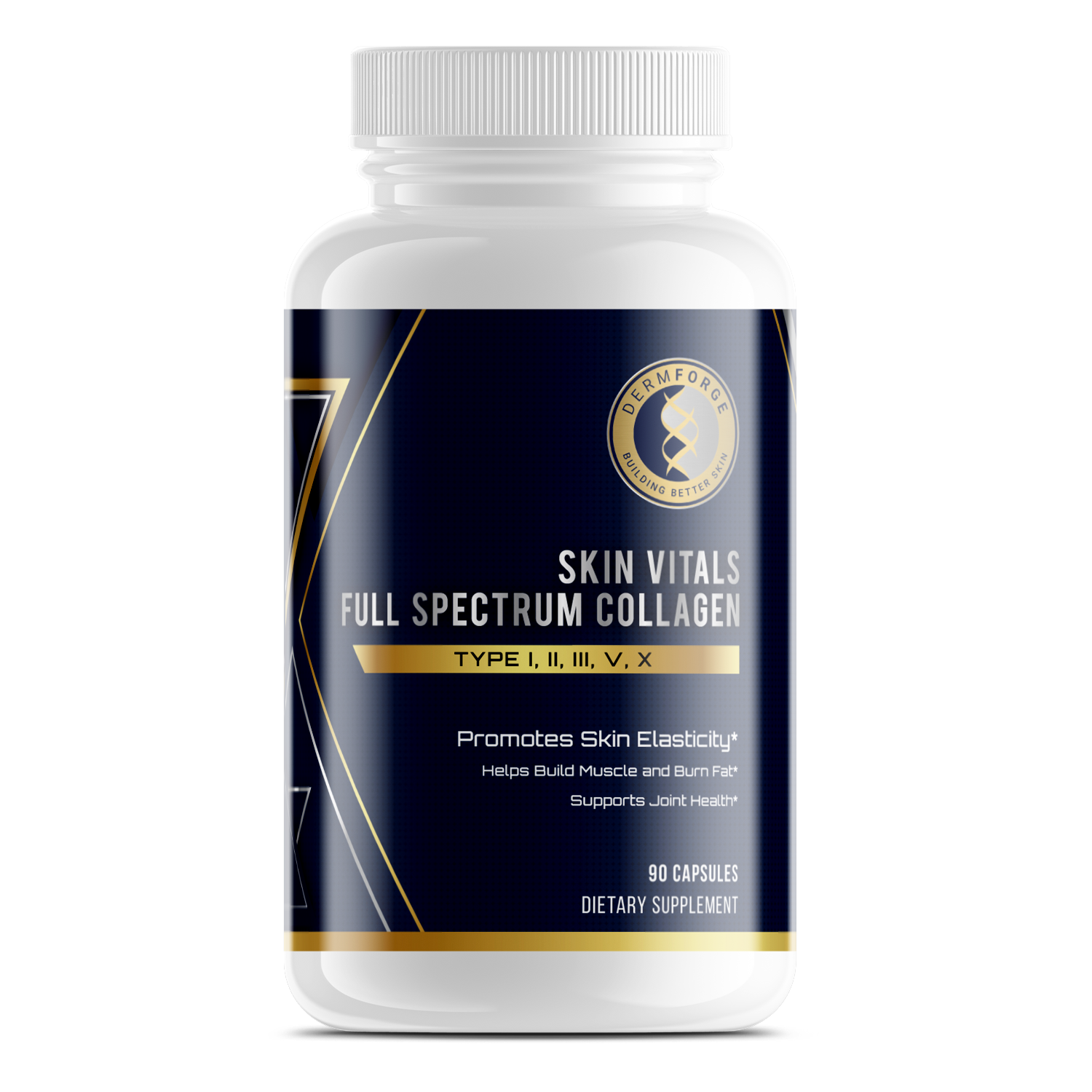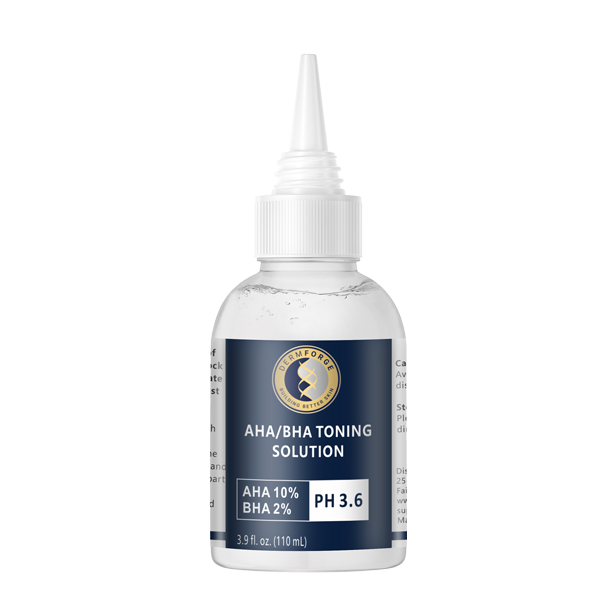The delicate skin around your eyes often shows early signs of aging, such as fine lines, wrinkles, and dark circles. Incorporating a retinol eye cream into your skincare routine can address these concerns effectively. Retinol eye cream benefits include stimulating collagen production, promoting cell turnover, and improving skin elasticity, leading to a smoother and more youthful appearance.
Retinol, a derivative of vitamin A, is renowned for its anti-aging properties. When applied to the under-eye area, it works to diminish the appearance of crow's feet and fine lines by accelerating skin renewal. Additionally, retinol helps to even out skin tone, reducing the visibility of dark circles and puffiness that contribute to a tired look.
However, the skin around your eyes is thinner and more sensitive than other areas of the face. Therefore, it's important to use a product specifically formulated for this delicate region. Retinol eye creams are designed with lower concentrations of retinol and often include soothing ingredients to minimize potential irritation. By choosing a specialized eye cream, you can safely enjoy the benefits of retinol without compromising skin comfort.
Incorporating a retinol eye cream into your nightly skincare regimen can lead to noticeable improvements over time. With consistent use, you'll likely observe a reduction in fine lines, enhanced skin firmness, and a brighter under-eye area. Embracing the benefits of retinol eye cream can be a valuable step toward achieving a refreshed and youthful appearance.
What is Retinol and How Does it Work?
Retinol, a derivative of vitamin A, has become a cornerstone in skincare, particularly in formulations targeting the delicate eye area. Its ability to address multiple skin concerns makes it a sought-after ingredient in eye creams.
When applied to the skin, retinol undergoes a transformation into retinoic acid, which interacts with skin cells to promote renewal. This process accelerates cell turnover, effectively shedding old, damaged cells and replacing them with new ones. The result is a smoother skin texture and a more even complexion. Additionally, retinol stimulates collagen production, a protein essential for maintaining skin's firmness and elasticity. This boost in collagen helps diminish the appearance of fine lines and wrinkles, common concerns around the eyes.
The skin surrounding your eyes is notably thinner and more sensitive than other facial areas. Therefore, specialized retinol eye creams are formulated to deliver the benefits of retinol while minimizing potential irritation. Regular use of these creams can lead to noticeable improvements in skin texture and appearance. For instance, studies have shown significant reductions in the appearance of lines, wrinkles, under-eye darkness, puffiness, and dryness after consistent application over 12 weeks.
Incorporating a retinol eye cream into your nightly skincare routine can yield significant benefits. By promoting cell turnover and enhancing collagen production, retinol addresses multiple signs of aging and fatigue around the eyes. As a result, you may notice a reduction in fine lines, improved skin texture, and a brighter, more youthful appearance. Embracing the benefits of retinol eye cream can be a transformative step in your skincare journey.
Key Benefits of Retinol Eye Cream
Retinol eye creams offer multiple benefits for the delicate skin around your eyes. By incorporating these into your skincare routine, you can address common concerns such as fine lines, wrinkles, dark circles, and uneven texture.
One significant advantage is the reduction of fine lines and wrinkles. Retinol, a form of vitamin A, stimulates collagen production, which helps smooth out these signs of aging. As collagen levels increase, your skin becomes firmer and more resilient.
Additionally, retinol enhances skin elasticity. By promoting cell turnover and collagen synthesis, it restores your skin's natural flexibility. This improvement results in a more youthful and refreshed appearance.
Furthermore, retinol eye creams can brighten dark circles. They accelerate the removal of pigmented, damaged cells and encourage the growth of new, healthy ones. Over time, this process leads to a more even skin tone under your eyes.
Moreover, these creams smooth under-eye texture. By increasing cell turnover, retinol helps shed rough, uneven skin layers. This action reveals a softer and more refined surface.
Incorporating a retinol eye cream into your nightly regimen can yield noticeable improvements. By addressing multiple signs of aging and fatigue, these products contribute to a revitalized and youthful look. Embracing retinol eye cream benefits can be a valuable addition to your skincare routine.
Retinol Eye Cream vs. Regular Retinol Cream: What’s the Difference?
Retinol is a widely recognized ingredient in skincare, celebrated for its ability to address signs of aging. When considering products for the eye area, it's important to understand the differences between retinol eye creams and regular retinol creams. These distinctions primarily involve formulation, concentration, and suitability for sensitive skin.
Regular retinol creams are formulated for application on the face and other areas with thicker skin. They often contain higher concentrations of retinol to effectively target concerns like wrinkles, uneven skin tone, and acne. However, the delicate skin around your eyes is thinner and more prone to irritation. Applying standard retinol creams to this area can lead to redness, dryness, and discomfort.
In contrast, retinol eye creams are specifically designed for the sensitive periorbital region. They typically feature lower concentrations of retinol to minimize potential irritation. Additionally, these eye creams often include soothing ingredients such as hyaluronic acid, peptides, and ceramides. These components help hydrate and strengthen the skin's barrier, enhancing the overall retinol eye cream benefits.
Furthermore, the formulations of retinol eye creams are tailored to address common concerns specific to the eye area. These include fine lines, crow's feet, dark circles, and puffiness. By using a product designed for this delicate region, you can effectively target these issues without compromising skin comfort.
Incorporating a specialized retinol eye cream into your skincare routine allows you to harness the advantages of retinol while safeguarding the sensitive skin around your eyes. This approach promotes a more youthful and refreshed appearance without the risk of undue irritation.
Who Should Use Retinol Eye Cream?
Retinol eye cream can be a beneficial addition to your skincare regimen if you're noticing early signs of aging, such as fine lines or crow's feet around your eyes. By stimulating collagen production and promoting cell turnover, retinol helps smooth these lines, leading to a more youthful appearance.
If you struggle with dark circles under your eyes, incorporating a retinol eye cream may assist in brightening this area. By accelerating skin renewal, retinol can reduce pigmentation, resulting in a more even skin tone.
For those experiencing under-eye puffiness, retinol's ability to enhance skin elasticity can contribute to a firmer, more toned appearance. This improvement may help diminish the look of puffiness over time.
Regardless of your skin type—whether oily, dry, or combination—you can consider using retinol eye cream. However, if you have sensitive skin, it's advisable to start with a lower concentration to minimize potential irritation. Gradually increasing usage allows your skin to adjust effectively.
Age is another factor to consider. While there's no definitive age to begin, many individuals introduce retinol eye cream in their late 20s to early 30s as a preventative measure against aging signs.
Incorporating retinol eye cream into your nightly routine can offer multiple benefits, addressing concerns like fine lines, dark circles, and puffiness. By tailoring its use to your specific skin type and age, you can effectively harness retinol eye cream benefits for a rejuvenated eye area.
How to Safely Use Retinol Eye Cream for Best Results
Introducing retinol eye cream into your skincare routine can offer significant benefits, such as reducing fine lines and improving skin texture. However, it's important to use it correctly to achieve the best results and minimize potential irritation.
Begin by applying a small, pea-sized amount of the cream. Use your ring finger to gently dab the product along the orbital bone, starting from the inner corner and moving outward. This method helps prevent unnecessary pressure on the delicate eye area.
To minimize irritation, start by using the retinol eye cream once or twice a week. As your skin builds tolerance, you can gradually increase the frequency to every other night or nightly, depending on your skin's response.
When layering with other skincare products, apply the retinol eye cream after cleansing and before moisturizing. This sequence allows the active ingredients to penetrate effectively while the moisturizer provides a protective barrier.
Additionally, consider buffering the retinol by applying a basic moisturizer before and after the retinol eye cream. This technique can further reduce the likelihood of irritation.
Retinol can increase your skin's sensitivity to sunlight. Therefore, apply the eye cream at night and use a broad-spectrum sunscreen during the day to protect the treated area.
If you experience persistent redness, peeling, or discomfort, reduce the application frequency or consult a dermatologist for personalized advice. By following these guidelines, you can safely enjoy the benefits of retinol eye cream and achieve a more youthful, refreshed appearance.
Common Myths & Misconceptions About Retinol Eye Cream
Retinol eye cream is a popular choice for addressing signs of aging around your eyes. However, several myths may cause hesitation in its use. By understanding the facts, you can make informed decisions and fully appreciate retinol eye cream benefits.
One common misconception is that retinol thins the skin. In reality, retinol promotes collagen production, which can actually thicken the skin over time. This process helps reduce fine lines and improves overall skin texture. Therefore, rather than thinning, retinol contributes to a more resilient and youthful appearance.
Another myth suggests that retinol is unsafe for daily use. While retinol can cause initial irritation, most individuals can build up to daily application. It's advisable to start with a lower concentration and gradually increase frequency. This approach allows your skin to adapt, minimizing potential discomfort. Consistent use enhances retinol's effectiveness in addressing signs of aging.
Some believe that retinol should not be applied around the eyes due to the skin's sensitivity. However, many retinol eye creams are specifically formulated for this delicate area. They contain lower concentrations of retinol and include soothing ingredients to minimize irritation. Applying these specialized products can effectively target concerns like crow's feet and dark circles without causing harm.
Additionally, there's a misconception that retinol increases sun sensitivity, making daytime use problematic. While retinol can make your skin more sensitive to UV rays, using a broad-spectrum sunscreen during the day mitigates this risk. Applying retinol eye cream at night and protecting your skin during the day allows you to safely incorporate retinol into your routine.
By dispelling these myths, you can confidently include retinol eye cream in your skincare regimen. Understanding the facts enables you to harness its benefits effectively, leading to healthier and more youthful-looking skin around your eyes.
Conclusion
Adding a retinol eye cream to your skincare routine can offer long-term improvements to your eye area. However, you should always apply it carefully to avoid unnecessary irritation or discomfort. Additionally, starting slowly allows your skin to build tolerance without overwhelming the delicate eye area.
If you experience puffiness, dark circles, or fine lines, retinol eye cream may help address these common concerns. Additionally, the cream’s collagen-boosting properties can improve firmness and texture around your eyes. Therefore, it’s an excellent option for those wanting a smoother and brighter appearance.
However, you should always pair retinol use with proper sun protection. Retinol increases your skin’s sensitivity to sunlight, so sunscreen is essential during the day. Additionally, using a moisturizer alongside your retinol eye cream can help reduce dryness or flaking.
By following proper application steps, you can safely experience retinol eye cream benefits without discomfort. Therefore, you’ll enjoy smoother, healthier-looking skin with consistent use. Additionally, you can adjust how often you apply it based on how your skin reacts.
If you’re new to retinol, you may want to consult a skincare professional before starting. However, once you establish a routine, results will likely follow with time and patience. Additionally, always check for irritation and adjust usage if needed.
Ultimately, retinol eye cream offers an effective solution for common under-eye concerns. Therefore, consider adding it to your nighttime routine to help maintain youthful, refreshed eyes. By doing so, you can make meaningful improvements to your skin’s texture and appearance.






